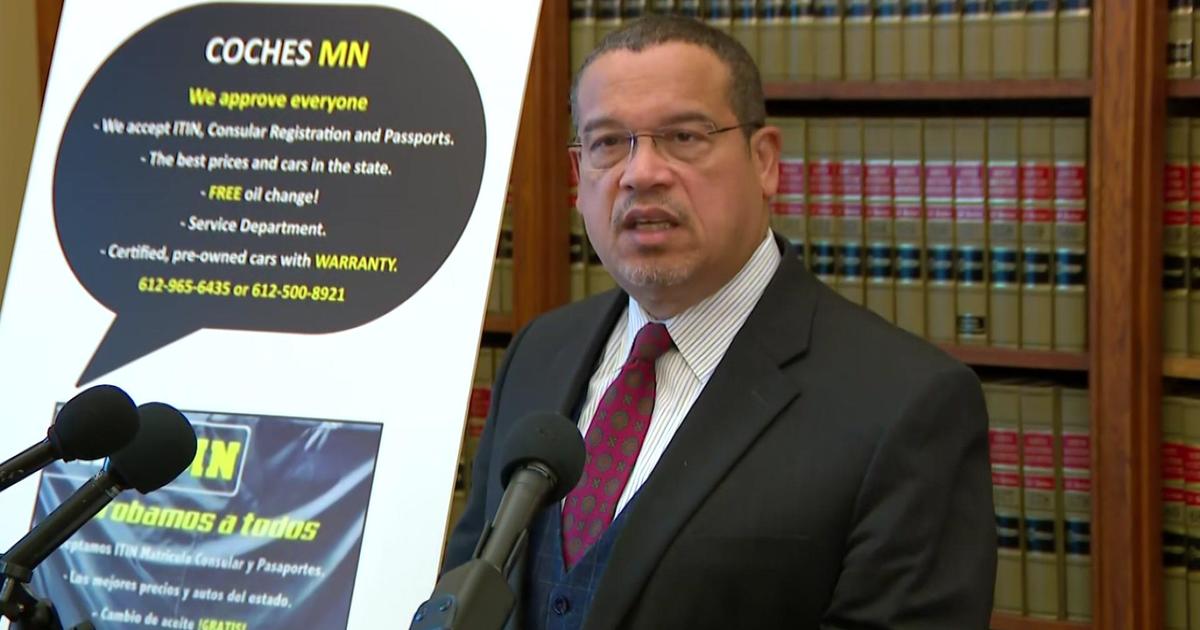Do Apps Promising To Stop Robocalls Actually Work?
MINNEAPOLIS (WCCO) -- Sick of robocalls to your cellphone? Minnesotans get an average of eight each day.
Now, apps promise to pick out the scammers, before you pick up. But do they work?
WCCO found a Twin Cities man going to great lengths to fight back against frustrating phone calls.
Jeremy Deysach runs his livestream on Twitch from a small office suite in Burnsville, where he has to be one of the few to call robocallers back, for fun.
"I take a completely different approach to how I handle them," Deysach said.
He gets about 15 calls like that a day. Sometimes stalling the scammer for hours.
"If I'm on the phone with them, they're not scamming some elderly person who's betting on hope," he said.
It's no secret that machine-made calls are out of control. The number of robocalls to Minnesotans doubled last year. More than a half million were made to the 612-area code in one month alone.
On the my Facebook page, viewers shared their frustrations: Nicholas gets dozens of robocalls a day, Kelly posted that he's blocked more than 3,000 numbers so far.
Bring up your phone's app store and you'll find a long list of programs promising to end the madness. We downloaded a few free options that mostly work the same way.
Get a robocall, report it to the app, so the next time the same number calls another user, it's marked as spam.
Deysach gave Robokiller a try.
"It will essentially answer the phone," he said. "While the one robocall is talking to the Robokiller, the Robokiller is talking back to it, basically mumbling saying hold on, hold on," he explained.
"Essentially, you've got two computers trying to scam each other," Deysach added.
But for Deysach it didn't last. The robocalls were back that same day.
Major cell carriers now offer their own lines of protection.
"All the feedback we get is very positive," said Oscar Murillo, a Verizon manager.
Verizon installed its free Call Filter on my phone. But even in our demo, the app wasn't 100% foolproof.
"It's identifying that the call is from Brazil. It should be identifying that it's a spam call," Murillo said.
At the University of Minnesota's Technological Leadership Institute, Mike Johnson doesn't think the technology is there yet for apps to be truly effective.
"In the interim, it just keeps going," Johnson said.
"In order for that app to work, you have to know it's a bad number," he said. "Someone would have had to report it, it had to have been used."
Number spoofing takes seconds. Meaning, it's just a matter of time for the machine to work around it.
"If I'm a scammer and suddenly my number stops working I just change it from 1,2,3,4 to 1,2,3,5 and I keep calling," Johnson said.
Johnson believes the old advice -- if you don't know the number, don't answer -- still rings true.
Robocall blockers are up front that results vary. Robokiller says it makes no guarantees.
The lasting solution may lie in what's known as stir/shaken technology. It's supposed to stop spoofed numbers by authenticating it's a real phone line on the other end. Major cell carriers are supposed to start using that technology in the coming months.



